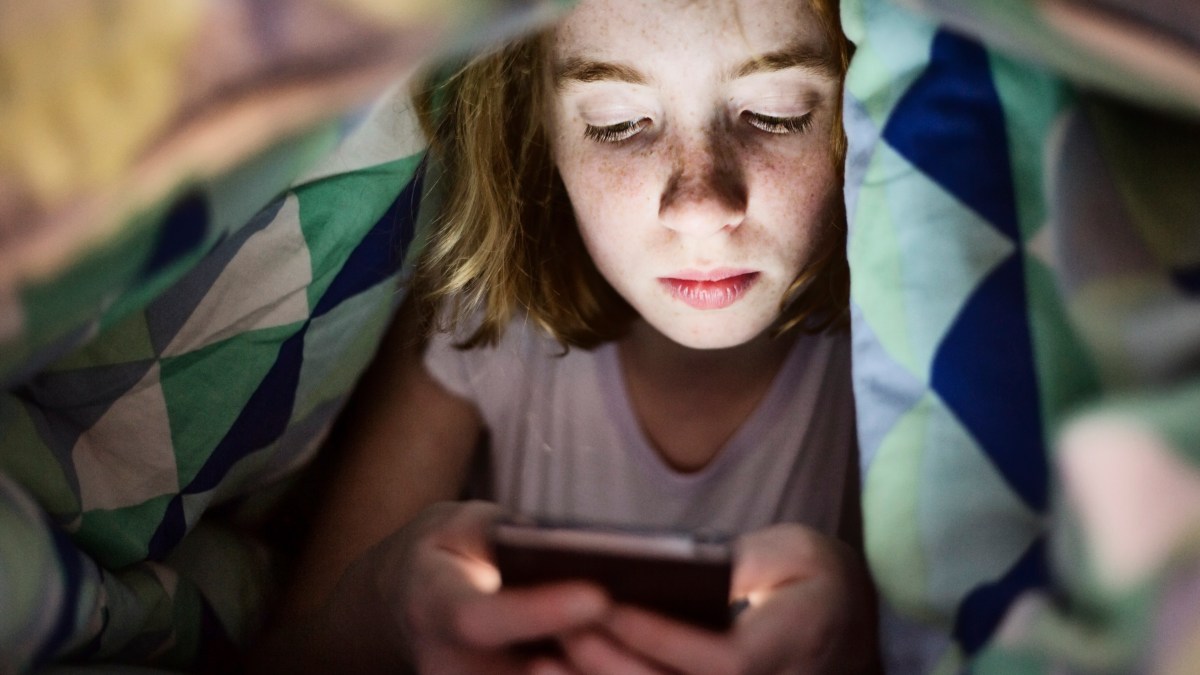Nearly a fifth of parents regret having given their children a smartphone when they did, a survey shows.
Two thirds of parents surveyed by a charity said they had given their child a smartphone. The most common age for a child to receive a device was 11, with 20 per cent of parents giving it at that age usually in preparation for secondary school, the poll by the charity Parentkind found.
Fourteen per cent of parents gave a phone to children aged nine or younger. However, 18 per cent regretted having given their child the device when they did.
• The psychologist who won’t let her kids have phones
A separate project has revealed the negative impact of the phones, according to teachers. School staff were encouraged to submit their views anonymously by the campaign group Smartphone Free Childhood.
The dozens of submissions include teachers dealing with nine-year-olds receiving nudes in group chats and being contacted by strangers, boys assaulting another pupil, filming it and sharing the video, teenagers filming sexual encounters to share in chats and boys sharing misogynistic content and creating “libraries” of photos of female teachers.
One senior teacher from an inner-city school in Berkshire said: “I have heads of year come to me at least once a week with issues they are facing either because of social media or made worse by social media. Some things stay with you, like an 11-year-old whose older brother had taken a photo of him naked and shared it on WhatsApp.
“It went around the whole school and two local schools, too. It was too late by the time he bravely came to tell us. Their mum found out last. She was utterly horrified.”
A secondary teacher from Wiltshire who returned after ten years away raising a family said: “I have been shocked by how different teenagers seem to be now. I am so worried by their lack of focus, inability to communicate with each other and the real aggression shown by some students.
“They come across as less able to co-operate and to build a relationship with, and it really saddens me. I also had a number of students literally fall asleep in my classes and they’ve told me that they were awake all night on their phones. That just didn’t happen ten years ago.”
Another teacher said: “I just started at a top boarding school where new third formers all get Microsoft Surfaces. In the first lesson when I asked them to take their pens out, only one student could.”
One teacher from a secondary in Essex said: “At my school we have a phone ban. Students aren’t allowed to use phones in lessons or during break or lunch. If they are seen, they are confiscated. But we all know they have them. We all know they go to the toilet during lessons to check social media or message their friends. We all know they are constantly distracted by them — but we can’t follow them into the toilets to take their phone off them.”
• First solid evidence shows banning phones in class boosts grades
One secondary school teacher at a private school in Wiltshire, which had locked away phones, said: “Students talk to each other more and are much more focused in class. It’s so nice as a teacher to not have to worry about taking phones off them or worrying if they are using them inappropriately. It’s how it used to be when I started teaching.”
Parentkind wants a clear and unambiguous ban on smartphones in school and for parents to set a good example with their own phone use. Some 35 per cent of parents said they worried they set a bad example, according to the survey.
Parentkind, the UK’s largest parent charity, has published its annual National Parent Survey in partnership with The Times and The Sunday Times. Conducted by YouGov, the survey is the biggest of its kind, capturing more than 134,000 insights into what parents think about schools, education and family life

